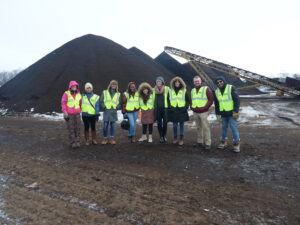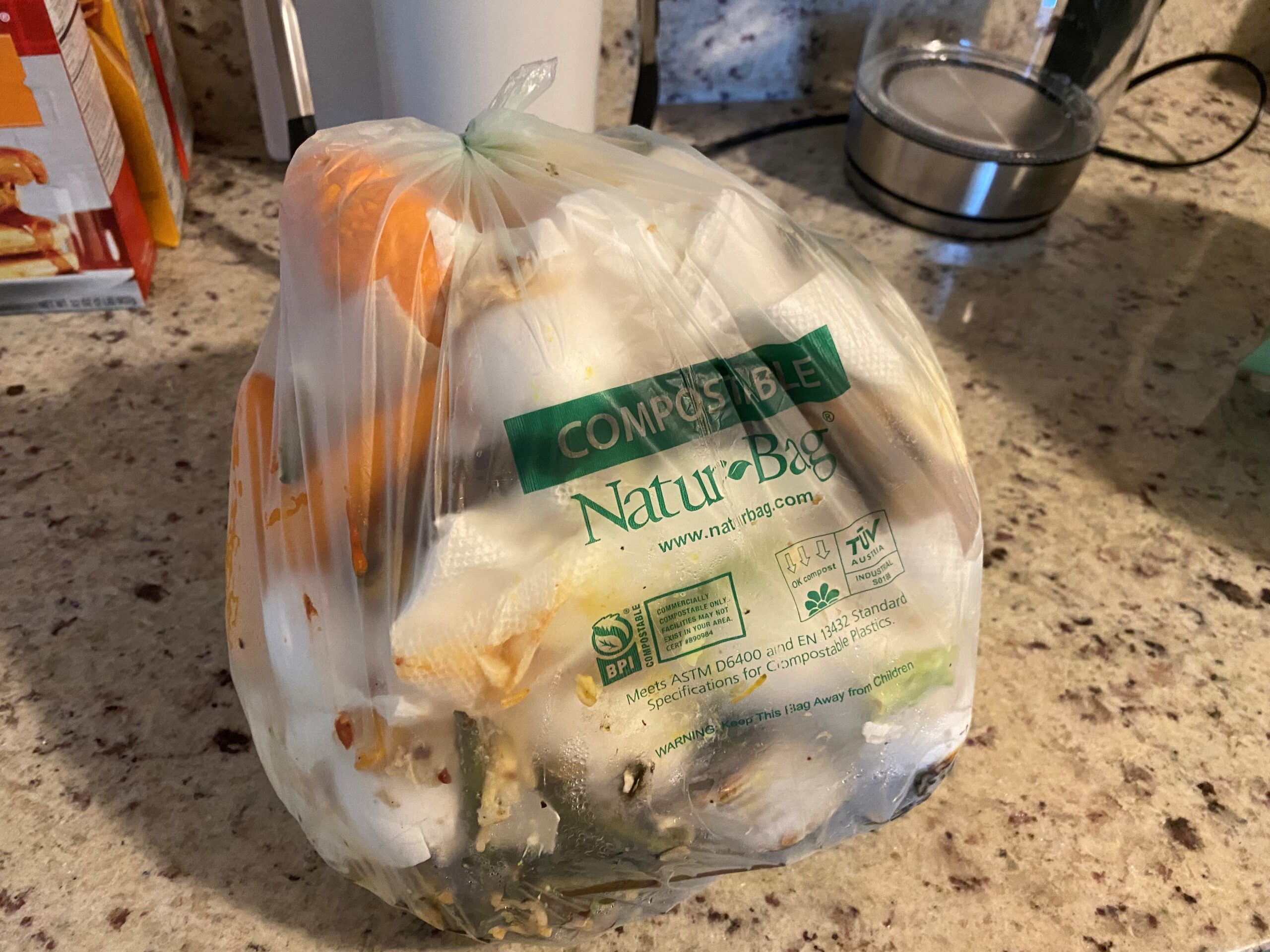By: Mercy Oyadare, Marketing Coordinator | Natur-Tec®
It’s been just over two months now that I’ve been working at Natur-Tec®, a division of Northern Technologies International Corporation (NTIC), who manufactures compostable and sustainable, biopolymers and bioplastics. I’m new to the bioplastics industry, so with the help of my supervisor and the Natur-Tec® team, I’ve been able to dive headfirst into education and training materials covering policy and much more. So far, here are my three key takeaways when it comes to the topic of bioplastics: education, accessibility, and participation.

Education is crucial for effective green and zero-waste initiatives. If people don’t understand the ‘why’ and the ‘how’ there is little reason to send their food scraps to an industrial compost facility as opposed to landfill. Prior to working at Natur-Tec®, I wasn’t aware of the fact that up to 70% of the municipal solid waste (MSW) that is buried daily can be composted or recycled in a more purposeful manner. This same lack of education contributes to the contamination seen at compost facilities which then disrupts the composting process costing operators both time and money.
In my experience, information on sustainability and the circular economy wasn’t taught in schools. For the average American, I can only assume their knowledge of this growing field is limited unless they are actively seeking it out or work in the industry as well. Despite the societal push to take care of our planet, these topics aren’t what most people are most interested in discussing, at least not on a regular basis. Take a glance at any mainstream social media feed and you know exactly what I mean. That is why I applaud cities, municipalities, compost facilities, bioplastic manufacturers, and other key industry personnel for their education and expansion efforts. By continuing to share facts, analyses, and tips in a digestible and accessible way, widespread knowledge is inevitable and will result in an improved organics recycling process and in turn aid our planet.
Quality education is key to understanding how compostables divert food scraps from landfills. Especially when misleading articles are published almost daily attempting to discourage the use of compostable plastics. Compostable bags, like our product line Natur-Bag®, help with the ‘ick’ factor that accompanies food scrap collecting. Using our bags cuts down on the cost of labor, cleaning products, as well as the smell associated with the process. When these problems are remedied, participants are more inclined to complete the circular economy cycle and ensure their organics are properly disposed of at an industrial compost facility.
Next up is tackling the topic of accessibility– spoiler alert: it’s difficult. Pertaining to the end-of-life of organics captured in a compostable bag, the cycle is only complete once that bag reaches the compost facility and realistically, most Americans simply don’t have access. There are plenty of individuals and businesses with zero-waste intentions who would prefer to send their organics off for composting, but there isn’t a facility within a reasonable distance nor an existing drop-off/pick-up program. This reality is frustrating, and I, along with many others, wish to have the end-all, be-all solution for this matter. But it’s just a matter of time (mixed in with patience) before food scrap collection becomes common practice for everyone.
I’m fortunate enough to have an organics drop-off location two minutes from my residence. When I learned how robust the Minneapolis organics recycling program is, I was thrilled to begin scrap collecting. In all honesty, if I couldn’t find a drop-off location within eight minutes of home, that might have turned me away from the process completely. I’m sure that’s a universally shared experience as we’ve grown accustomed to convenience in this country. If you’re currently unaware of the food and yard waste collection opportunities in your city or county, I’d encourage you to get online and do some research. There are even Facebook groups that exist where members share knowledge and ask questions (I’ve joined mine!)
Access to proper education, compostable liners, and a nearby facility are all factors that inch us closer and closer to achieving zero-waste in this country. It takes time to see good things come to fruition, so in the meantime, it’s crucial to be resilient and do your part in any way that you can.
My last takeaway is that doing your part matters. Ensuring that the compostable bag containing food waste is disposed of correctly; meaning that it is delivered to a compost facility and not simply carted off to the landfill (if that is accessible for you, of course). This simple diversion lessens your carbon footprint and returns those organics back into nutrient-rich soil to be sold and also support the economy—just another bonus! There is no shame in starting off small and allowing scrap collection habits to grow over time. Even with my small bag of scraps I send out each week, I know over time I have a hand in producing nutrient-rich soil that will continue the carbon cycle.
As far as it goes for larger establishments like restaurants and sports complexes, starting organics collection and sorting with the back-of-house team members is an effective step to becoming a zero-waste facility. That way you’re allowing your team time to learn and perfect the process and at the same time, educating customers, sharing your zero-waste efforts, and giving customers an idea of what’s to come.
What I admire about Natur-Tec® is that we are more than just a manufacturer. When it comes to the educational aspect of organics collection, we provide both information and resources, and we are eager to answer any questions you may have. Sort anxiety is something you may experience when starting up a sort collection system. A way to combat that is placing educational signs above each of the bins (i.e. compost, recycle, and landfill) with pictures and text to provide examples of what type of waste goes in the appropriate bins and lessen contamination. In this case, Natur-Tec® provides our customers with the ability to customize and generate signs to reflect the types of waste that goes in the appropriate bin.
Doing your part, whether on a small or large scale, is an integral part of healing the planet we call home. I acknowledge that my learnings are not groundbreaking, but for the reader it doesn’t hurt to consider a fresh perspective. It might just serve as a reminder on how far the industry has come. So, thanks for taking the time to read through to the end. And with that, go and be green.

